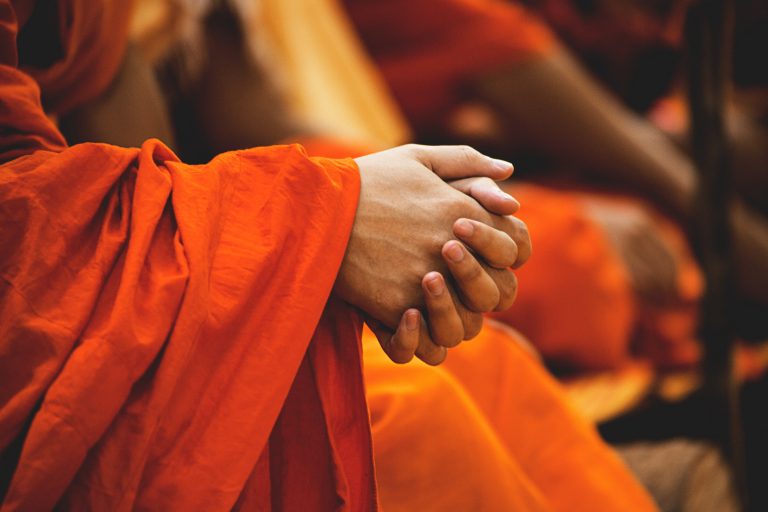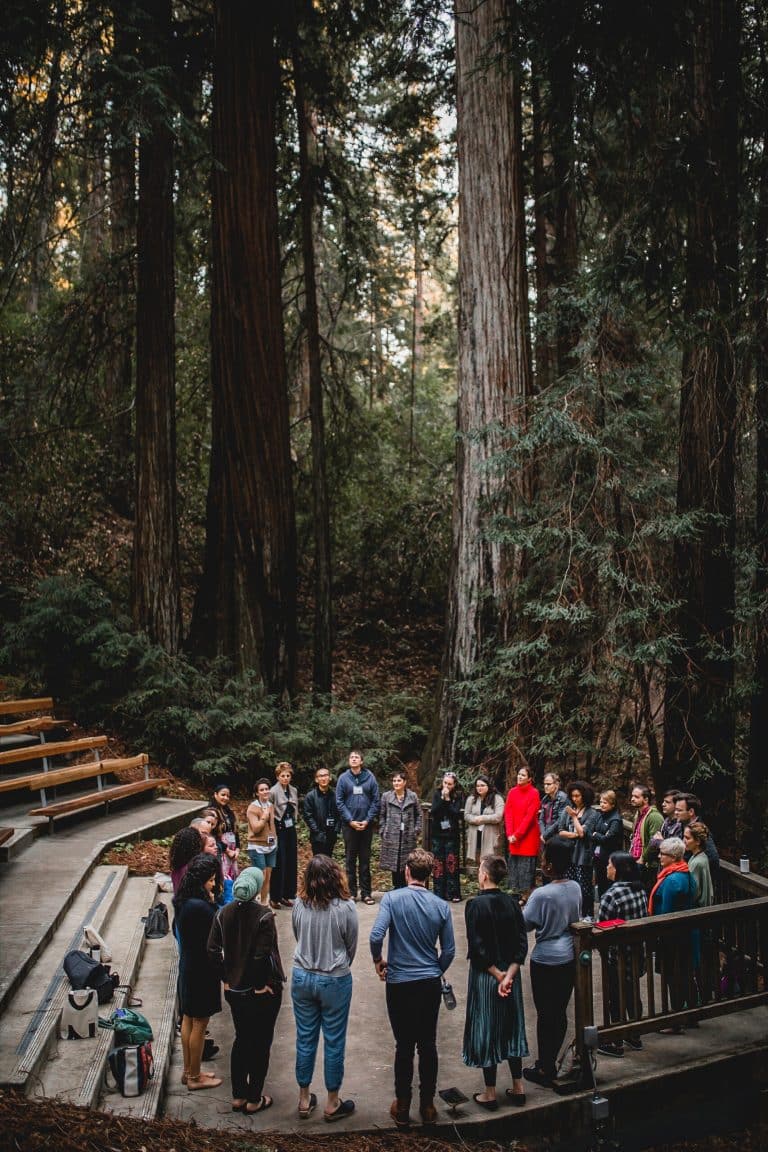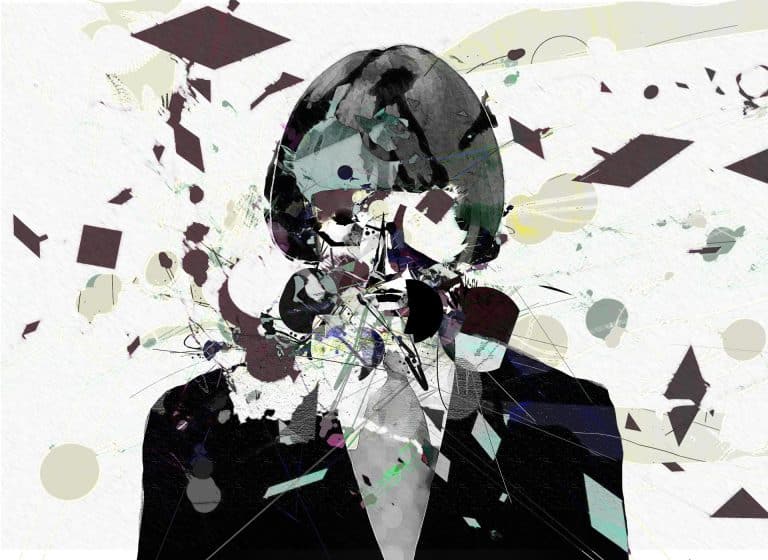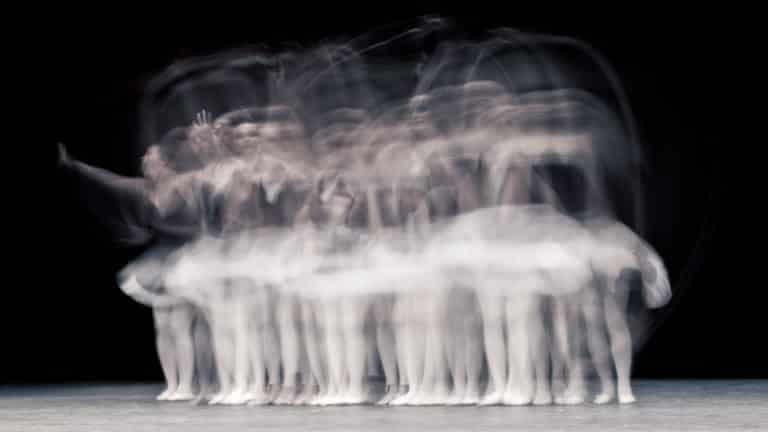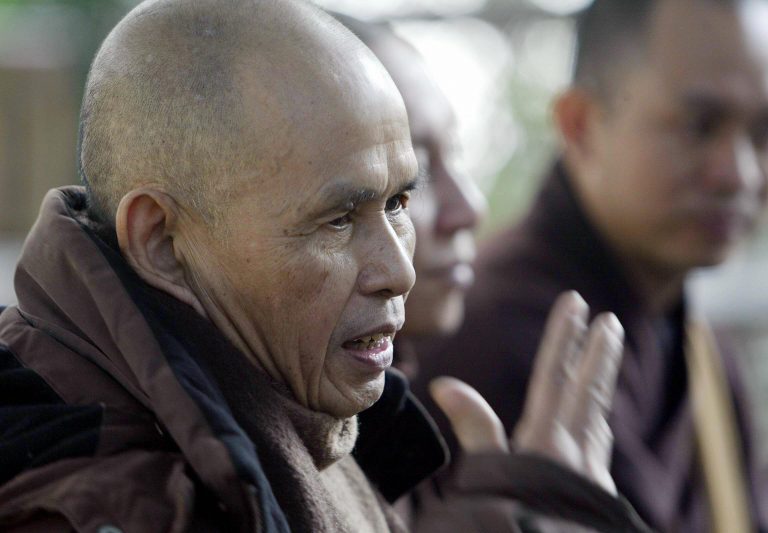anger
View
- List View
- Standard View
- Grid View
25 Results
The power of honoring our emotions as truth is to allow them to complicate — and enhance — how we understand the world and each other.
How can we begin to move from anger toward a love that "illuminates even the dark side of hate?" Robert Thurman looks to His Holiness the Dalai Lama as a model for compassionate and cheerful resistance.
In times of anxiety, distraction, and dissonance, it can take courage to turn away — to ground yourself in the focused anger needed to bring about change.
The work of building inclusive spaces is hard, lifelong work. But it can be nourished by a deep sense of abiding joy.
What if we trusted what our bodies tell us about our experiences? On the frustrating gap between our emotional intuition and the reality that we perceive.
Sharon Salzberg's advice for difficult conversations with family at Thanksgiving? Practice listening from a place of generosity and love — whether you agree or not.
Can the occasional cathartic rant lead to healing? The virtue of letting our frustrations be heard — from Russian novels and the Book of Job to a Catholic women's "pray and bitch" prayer group.
Reflections, recalibrations, and resources to help us temper our anger, and find space for a constructive, healing civic life.
A sense of mindfulness can help us recalibrate our reactions to those we judge as different or dangerous.
What might we make space for if we gave up our indignation, even if just for a moment? A historical and philosophical inquiry into the roots of this social moment.
An appeal to move beyond anger and reactiveness, and to concentrate instead on the immediate, crucial work of embodying justice.
A heated political climate can bring a blaming instinct to the fore. Courtney Martin on pointing our fingers inward instead of out, and reimagining the capacity we already have to rehabilitate the American dream.
Life can be frustrating, and we often react with resistance, or overwhelm. Sharon Salzberg reminds us that emotional balance doesn't come from denying feelings, but from allowing them room to play out fully.
Becoming fixated on a problem at the office or an injustice to others can often lead to intense anger. But, how do we avoid the narrowness of this emotion and not let it consume us?
Each one of us has a "constellation of tendencies," but often we identify more strongly with a certain set of responses. By identifying our dominant personality type, we can see these tendencies in their purified and unpurified forms — and find a world of options opening up as we become more aware.
An unexpected moment on the Katie Couric show instills an awareness of the fruits of mindfulness, a deep sense of lineage, and an inexpressible peace for our columnist.
Mindfulness and meditation are becoming pop culture buzzwords. But it isn’t just about hearing, seeing, or observing a particular feeling; it’s about doing so in a certain way — with balance and equanimity, and without judgment. Our columnist Sharon Salzberg walks us through the deeper case for mindful attention.
Editor’s note: This is a transcript of a dharma talk Thich Nhat Hanh gave on the mindfulness of anger meditation session at The Green Lake Conference Center in Wisconsin in 2003. Who is five years old here? Who are less than five years old, please? How many of…
Previous
The Pause
Join our constellation of listening and living.
The Pause is a monthly Saturday morning companion to all things On Being, with heads-up on new episodes, special offerings, event invitations, recommendations, and reflections from Krista all year round.
Search results for “”
View
- List View
- Standard View
- Grid View
Filters
Listen
Read

